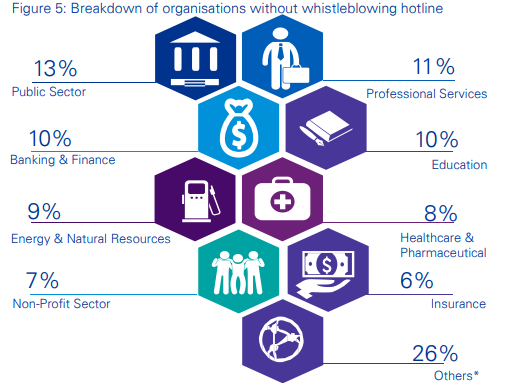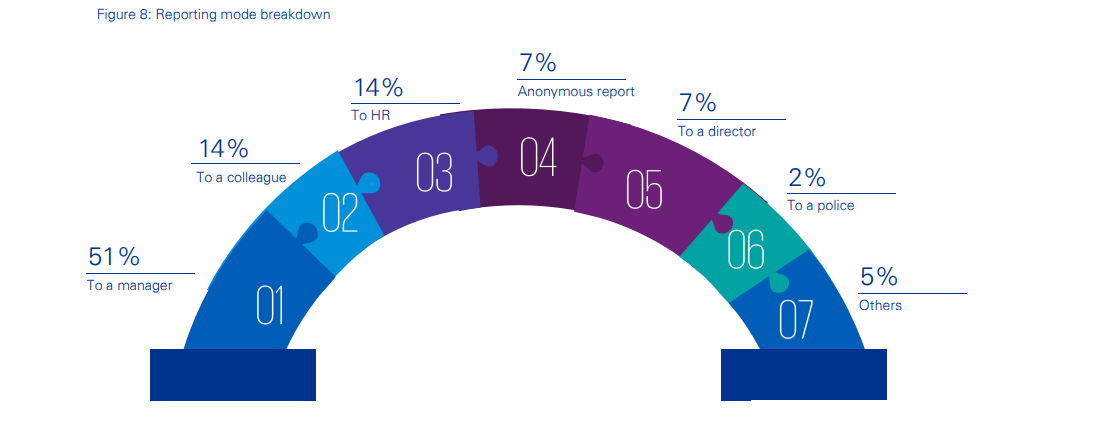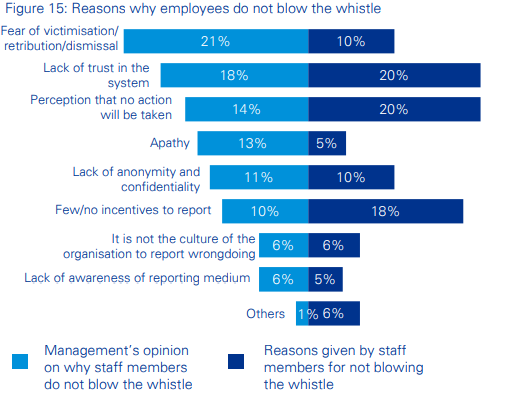No whistleblowing policy in 59% of companies in Ghana – KPMG
- Posted on
- Comment

A recent survey conducted by audit firm, KPMG has shown that 59 percent of both public and private institutions in Ghana have no whistleblowing systems to encourage staff and management members to raise alarm on workplace wrongdoings.
The public sector accounted for 13 percent of the figure.
The survey inquired from respondents whether they had a whistleblowing hotline in their organization and what alternative channels were being used to report unethical practices where the organization had no whistleblowing hotline.
“59% of those that completed the survey reported that their organizations had no whistleblowing hotline. This may be because most organisations either do not understand the importance of a whistleblowing hotline, deem establishing and maintaining whistleblowing hotline to be costly, or associate whistleblowing with negative connotations such as victimization, intimidation and the like,” the report said.

66% of respondents in organizations without a whistleblowing hotline stated that they had witnessed some unethical behaviour.
Out of the above, 37% reported the issue to mainly a manager or a colleague.
But the remaining 63% of employees that did not report unethical behavior could be due to factors such as fear, mistrust, and apathy, coupled with a lack of anonymous or confidential whistleblowing channels.

Unreported issues
The survey also asked staff members why they opted not to blow the whistle even though they witnessed or were informed of unethical behaviour.
Top issues not being reported are nepotism, favoritism, discrimination, and misappropriation of an asset.
Even though issues like nepotism and discrimination do not necessarily constitute fraud, they can facilitate the same and have an adverse effect on staff morale and a company’s reputation, the report noted.
According to the report, it appears employees are not reporting wrongdoing because of the lack of trust in the system and the perception that no action will be taken.
Fear of victimization accounted for 21 percent of this situation.

Amend Act to support private sector
KPMG in its report urged that the Whistleblower Act should be amended to address financial misconduct and other criminal activities that occur in the private sector.
“Additionally, the Act is heavily skewed towards whistleblowing in the public sector and is not very clear in its application to the private sector and non-public interest situations. Specifically, publicly-traded institutions
and others of public interest should be mandated to institutionalize whistleblowing to help secure and engender trust and confidence in stakeholders”, KPMG advised.
Ghana’s Whistleblower Act (Act 720) was passed in 2006.
It provides legal protection and remedies to all people, employees, and citizens who report crime and misconduct in the public interest.
-Citi








 (Selorm) |
(Selorm) |  (Nana Kwesi)
(Nana Kwesi)